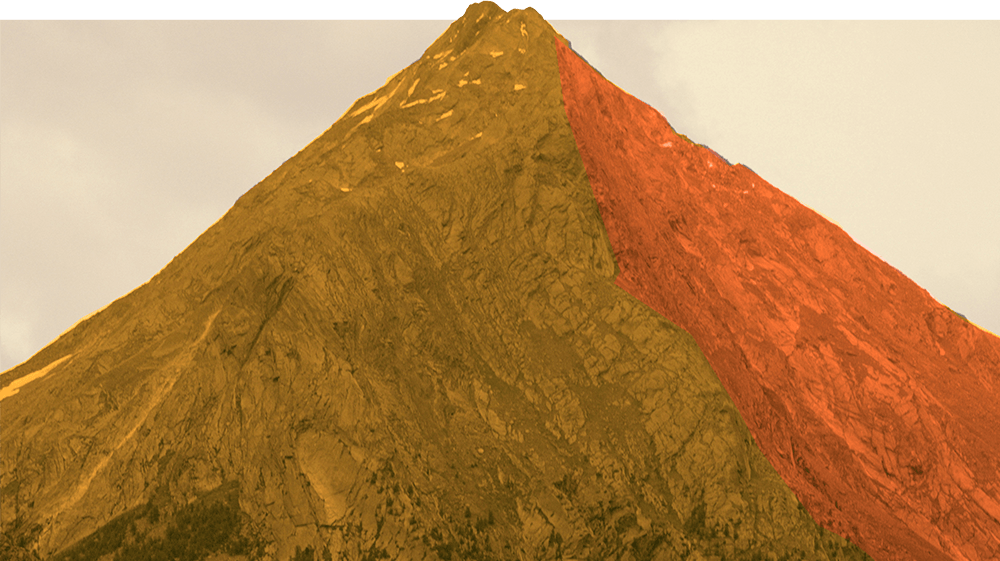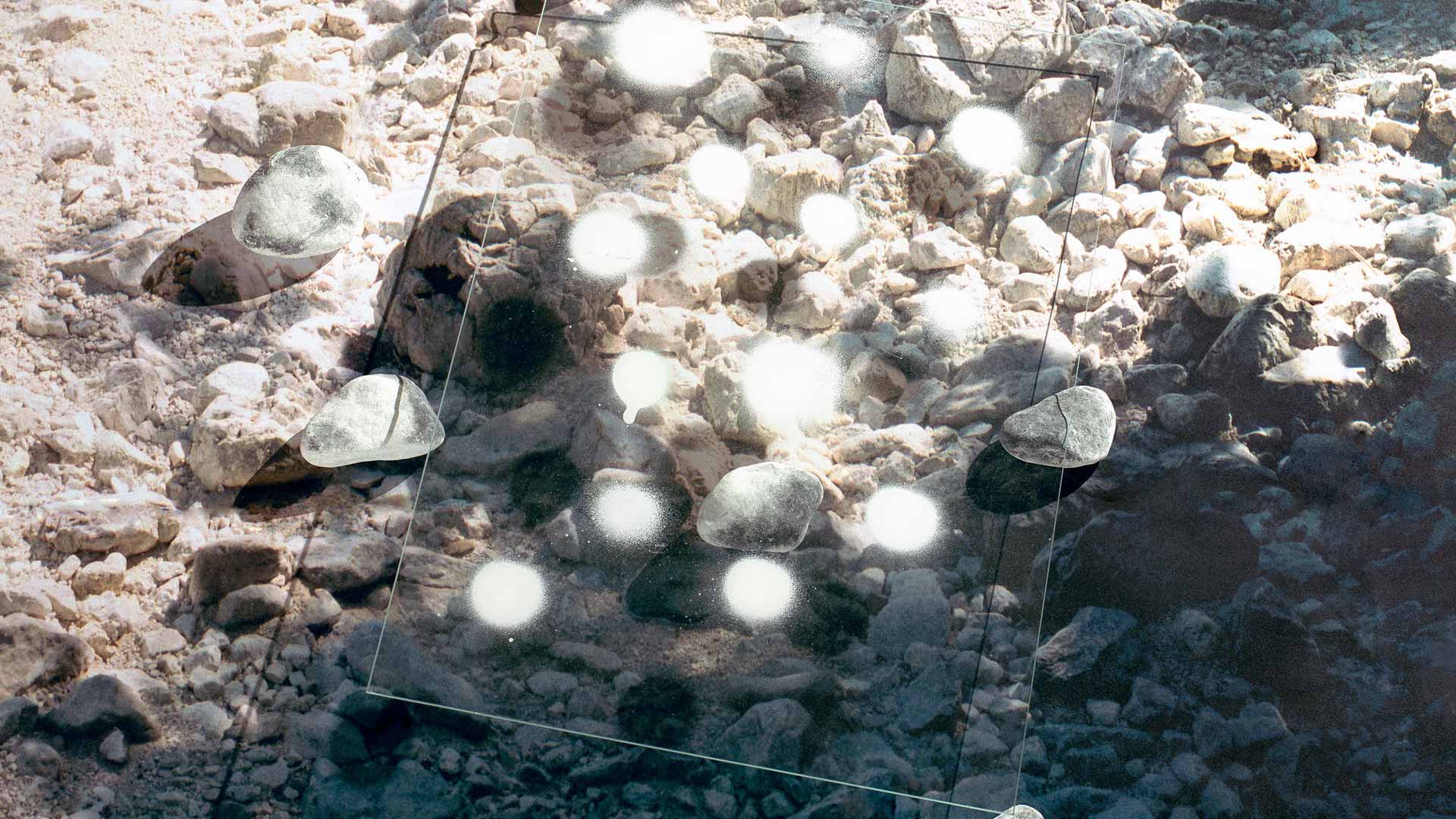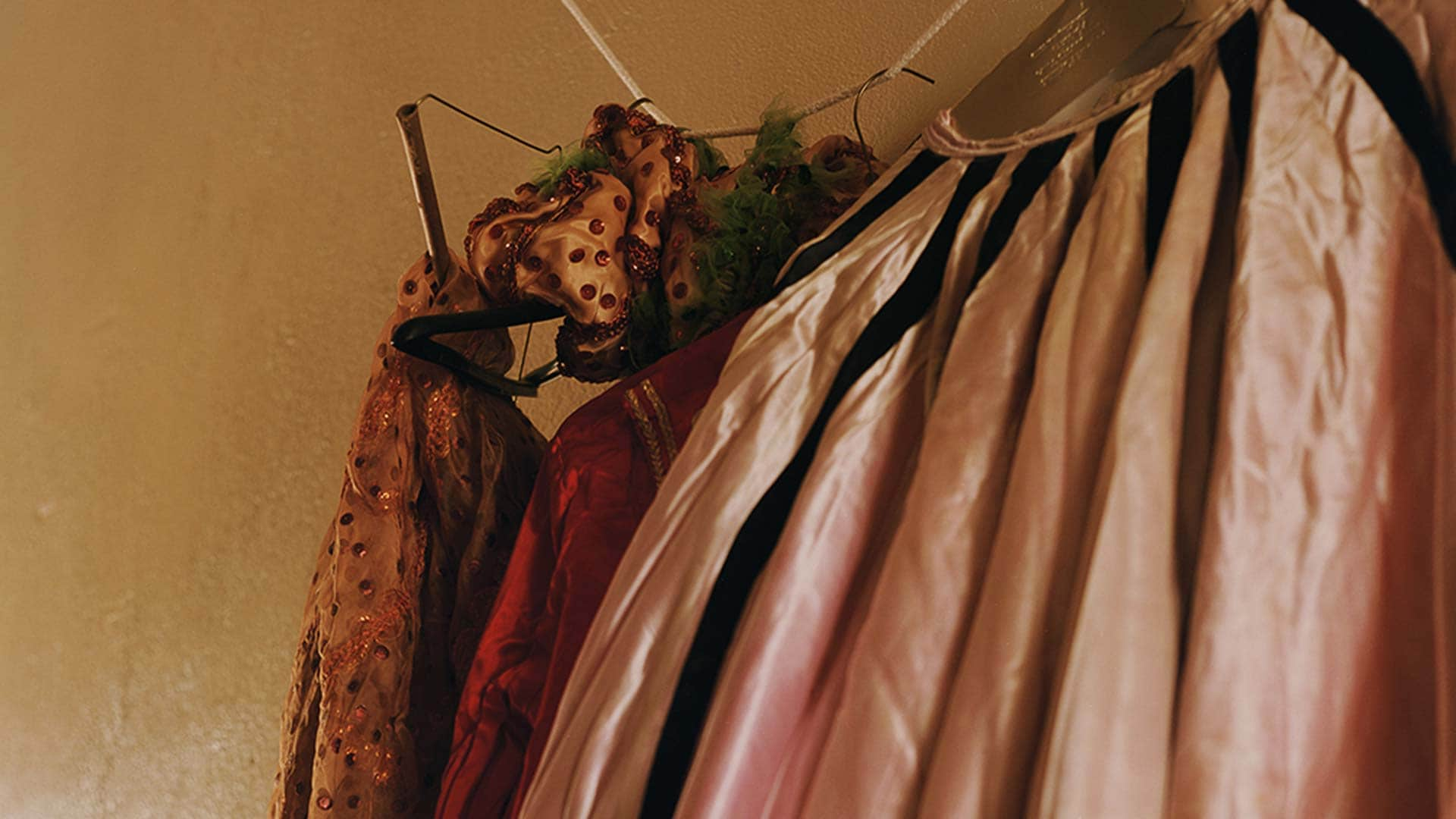*** I stopped flap. It was there. It was approaching, carried along by its momentum. It must have been running like that for heaps of hours, tied to the threads of my odor. I set my back against a trunk, got a firm grip on my club. The inhaled air had lost all oxygen. My eyes were now red and my body was in poisoned-she-cat convulsions. My arms had gone rigid. I felt rage and sainted fright. Only one blow would be possible. Fracture its face. Bash in the jaw so it breaks a vertebra. A single vertebra snapped; my body, saved. Strike with decision, not with strength but as a block of energy and with unerring aim. I made ready to do so; I imagined myself doing this; I assured myself I could do this. I took the time to breathe deep, slowing the anxiety of my lungs begging for air. I took the time to get used to my all-worked-up muscles. Air entered me like a sea breeze, a motherly nursery rhyme nestled in a rocking chair, a banjo strum at the pink of a dawning day. I exhaled—at length and slowly—my confusions and fears. That made my vigilance giddy. I was ready.
The mastiff was approaching. Appalling, the power of its paws. My doubts came rolling back like a widespread tide. The paws’ impacts were clearer, like twacks on a drum. They punched in the earth. And their rapidity was beyond comprehension. That speed would make it invisible. I would not see even a wisp of its smoke. I feared lacking time to launch my blow. Thrash fast. Strike true. I adjusted to the dog’s gallop, gauged its approach, suited my blow to the bellwethering of its paws. My doubts flowed back. Spindrift. Relief. Deep breath. I felt armed once again. I was going to sic the disaster of a lightning bolt on it. I was there with it. Here I am, there you are. But (. . . A-a! . . .) the sound of the paws ceased. The monster had stopped short to stand still. It knew I was there. It knew I was waiting for it. Its killer’s instinct detected my presence. I did not move. Time went by some more. I heard nothing. My arms tried to tremble: my imagination was beginning to head out to sea. I was seeing the monster slip behind the tree where I was posted. Yes, it’s there on the other side of the trunk. Despite myself, I turned my head, changed position. Again I imagined it on the other side. And even coming from high up. I did not know what to do or which way to turn. My eyes on alert watched in every direction. I ran to shelter beneath a different pied-bois to better cover the surrounding area. Peace. Shade, sunniness, leafiness. Nothing else. So then I listened. Ears pricked up. Nose-holes open. Trying to distinguish the rustle of the wild-beast body against raspy lower branches. Listening hard. Crossing the silence. Hearing. There was as if a pounding of water. A floundering. I understood on the spot: the spring! . . . The mastiff was well and truly drowning! Clawing to death the crumbling banks! Bogging itself down! Coming back up to get bogged down again! . . . My arms to the sky: Hosanna . . . O Gloria! . . . I rushed toward the spring. I reached it swiftly. I saw the dog. It was frightful. Covered with mud gobs. Covered with leaves. Covered with debris. Barely growling, it was struggling in the moving trap. An evil boiling. Its bidime-big paws were collapsing the edges, flinging up vines: a mushy soup of muzzle, mired-up eyes, suffocations, tohubohu-churning the most ancient of muds. This would disappear for seven to nine seconds to resurface with cas-et-fracas, disturbance-and-turbulence. What I saw was dreadful. It looked like a zombie trying to escape a prison of exorcisms. I did not know how to get closer, or dare get close enough to strike its spine. Get its drowning going. Yet I approached without really thinking about it. The ground gave way, spongy, soft, sucking, famished. In up to my kneecaps, I was still far from the hellish bouillon. So I retreated. I followed the rim of the hole, hoping for a small tongue of solid ground. But my prey was foaming in the mitan-middle of the spring. Inaccessible. Oala, immediately the monster s’envoya-monter, shot-itself-up. A big-mother fish-leap. I saw it whole, arced in the air in the wink of an eye before falling back heavy into the bouillon hole. This dive splattered me with miraculous mud. The enemy was at my mercy. I was crazy-circling around.
I approached on my belly so as not to sink in. But in that position, impossible to strike. So I returned to the edge. I found a low branch to cling to. That way, I got out over the bouillon. And I struck. Biwoua. One-handed. Biwoua. With my fears, my hatreds, my rage and my longing to live. The mastiff howled like a Seven-headed Beast. Never heard a catastrophe like that. A calamity of tonsillar sounds and muddy smotherings. It bounded again. Its eyes snatched at mine while it was in the air. It discovered me with curiosity. Twisting even beyond belief, it shot its manman-muzzle out at me. I saw its fangs gleam amid the formidable foaming. I struck it again. Biwoua. Right on a rib, but this was tickling the trunk of a silk-cotton tree. My position allowed no room for a back swing. I returned to the rim of the hole, resigned to keeping watch on this agony from a distance. And striking the monster should it happen to emerge. My blows had increased its furies tenfold. Its leaps and torsions were more fearsome. A mite despairing. My eyes bulged: I had never seen such an infernal debacle. Suddenly, in a sulfurous sault, the mastiff landed outside the hole. Full on some soft soil swaddled in roots. I saw it laid out long on the uncertain turf. Its paws were whipping up a blackish scum. Its jaws snapped at the void. Suddenly, it grew calm, exhausted. Its body now expressed nothing but breathlessness. Gradually, its respiration slowed while yet remaining deep-drawn. It looked at me. I went round the hole to be across from the animal. Its eyes followed me. We were soon face-to-face, separated by ten yards of turbid matter. The fantastic spring loosed bubbles of sulfur to burst at the surface. The clear water welled up beneath the cracked crusts to spread wide like magical oil. Luminous patches celebrated its sheen. The monster sprawled out, eyes firmly affixed on mine. I was horrified. I knew it was enmired in the muck. I saw its body gently sinking. Even though it was caught there, I was horrified. Probably because of that gaze free from all fear. It stared at me: bloodcurdling curiosity. Its problem was not the marshy trap, it was me. And that scared me. Despite its sudden calm and breathlessness, its energy came through intact. I knelt down to see it better. I set my eyes to stare and bared my teeth. Had to impress it. Suggest to it (myself as well) that I did not fear it, that I could take or spare its life. We stayed like that in a time without length. Eyes in eyes. It, ever calmer; me, petrified by my show of valiance. The Great Woods were moving around me. Became a great blur. I was floating in a dizzy whirl of aggravations. The spring (with its muds, its virgin waters, its hundred-thousand-year-old sulfur) was joining forces with that vision, increasing its giddiness. I found myself laid out in the leaf litter, my gaze level with my enemy’s eyes. Eyes in eyes. No blinking. Hold on. Hold raide. I appointed myself a hunter, transformed the other into prey. It (I felt this) kept itself opaque; me, my awareness became clouded. The miasmas of the spring must have been poisoning me. So were the monster’s eyes, open onto holes-without-end. The animal was stronger than I was. I heard knocking in my chest. My heart wanted to crack open my ribs. I shivered. I moaned. The monster howled. I jumped up flap, and fled at top speed. I had lost my bet.
The monster leaped toward terra firma. It knew instinctively where that was. It landed heavily on the edge of the bank. Crawled along a deep furrow. It was managing to get out. I returned frantic to where it was heading. There, I saw it one more time before me. Frothing muzzle. Gaze sans-maman. I felt myself weaken. It was creeping toward me as if not fearing me. The muck and dead leaves transformed its skull. It seemed a subterranean crab churning the earth. I struck with every strength. Biwoua. Biwoua. My legs, plunged in the sludge, were tipping me off-balance. My wobbly blows were not slowing the terrible advance. A cold resolve was expelling it from the spring. Gazing straight at me, its eyes soon overwhelmed my mind. I lost the courage to strike. Feeble, I aimed blows it deflected with its muzzle. The vise of its jaws gripped my club. I fell to my knees in the slime. I could do nothing. My resistance was giving it leverage to advance more quickly. Pulling on my club was hauling it toward the shore. I gave up. Rolling over, I ran away. Fear severed the suction around my ankles. Running. I shot my body through the undergrowth, battered myself against tree trunks, got twisted by branches. I was truly throwing myself. It was all leaps, jumps, rolling downhill, sudden somersaults. I was a tête-folle nègre, crazy-head beyond control. My legs shot off like wild arrows. My arms flailed in impossible flight. I went zigzagging, zinzolant. This panic ceased at the sudden snap. Crac. A stump. My ankle. The tip-over. I wound up demolished on the ground. Numbness, then raide throbbing. A sunburst of pain. I tried to get up. I fell back again, swallowed in darkness. * The mastiff had not understood what had happened. It had been right on track. The trail had become unbelievable. The scents were thinning out beneath the array of forces in motion. Waves that scintillated, invisible. Shrill sounds, chopped into a complex rhythm and then flowing in discordant sonorous sheets. The mastiff was receiving a real rush of mantras face-on. Its lolling tongue was capturing tastes impossible to know. They awakened chessboards of reveries. The animal took the taste of salt copper then bayberry salve then a rock crystal dissolved in hydromel. It took a country savanna-liking for guavas then fern seed. It believed it was following a crowd bathed in pollens of exodus, beings of all natures, all odors, all fears, all wills and wants. It sped up: the prey was getting closer. It was there, moving like a pluie-fifine-drizzle. The mastiff snarled in surprise. The trail opened immense as a cyclone wind. Whirling in gold and fire. The mastiff thought it had caught up with a giant. The creature pursued was a ball-of-powers. This perplexed the animal: the trail became a maze of mirrors and brutal reversals full of smells in disorderly flight. As if the being—or beings—pursued were heading back toward it. At a fine clip. A light authority, sure of itself. The mastiff suddenly felt hunted. Its course became that of an anxious animal. A quiver ran through it. Unpleasant. It tried to move away from the magnificent wake, curve around to better pounce from behind on what was bearing down on it, but the ground vanished. Water. A hole of water pulled the dog down. It went down deep. The animal, which had crossed rivers and floods, tackled inlets of demented seas, able to cleave difficult currents and explore underwater ravines, knowing water without fearing it, did not understand into what phenomenon it had fallen. It was a sinkhole.
It was made of water rock fire earth wind and roots. A lively bowel primed for digestion. A dangerous door: la-porte. The mastiff felt threatened. It let loose. Sucking-snappings. It needed to bound toward the odors of good earth floating all around. It was leaping with a hint of despair. In the air was when it saw or, rather, sensed, smelled its prey. Its eyes were clogged with vegetal matter. It glimpsed a shape. Radiating an incredible force. A crystal of light. This being landed a blow. Weak. Then another. Without using the intensity shining within. If that potential were to mobilize, the mastiff knew it was lost. So it shot its muzzle out at the being. In vain. The shape became a vivid reddish glare. Then a dark pulsation. Fearing a counterattack, the mastiff leaped up several times until it fell upon a sliver of stable mudbank. The animal began to crawl. And there again, it saw, in its murky vision, the formidable being loom ahead. A prism of lunar clarities and with darkness replete. The being had changed into pure energy. The mastiff crept toward this splendor. Attracted by it. Blows landed on the dog but so feebly that they must not have come from the marvel to which it was crawling. Yet the marvel was striking the blows. Probably in ritual defiance. The animal was discovering a worthy adversary. This reawakened the flesh-eating ferocity that exploded inside it in moments of peril. It clamped its jaws on what was hitting it. The thing resisted, then fell apart in its fangs. The mastiff hauled itself over to solid ground where it could stand up. Ready to go wild. But the splendid being was gone. The mastiff thought it had been a hallucination. Yet the trail was there. Quickly recovered. Flamboyant. Quite close. The mastiff shook itself; then, with most prudent paws, padded along it.


